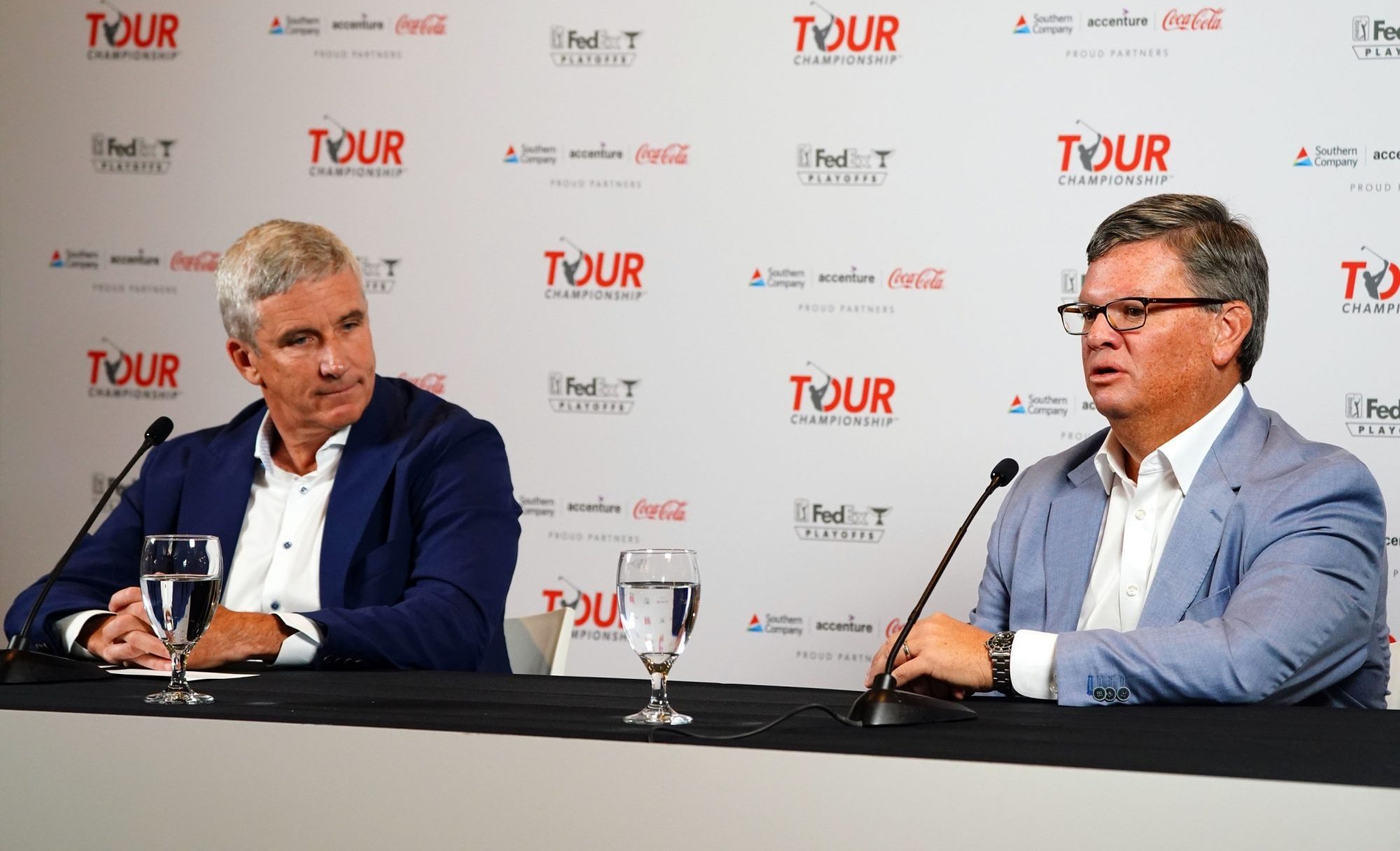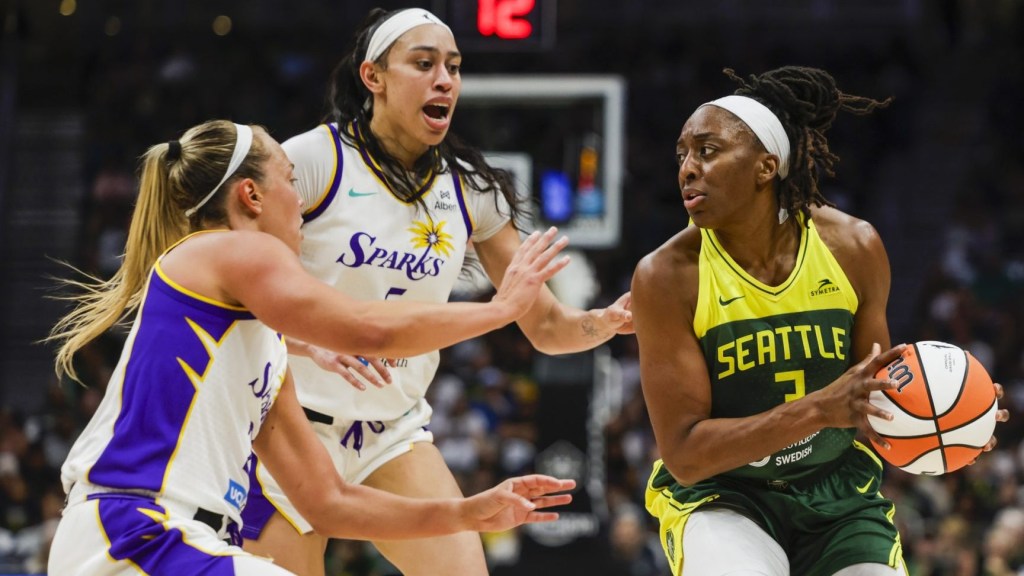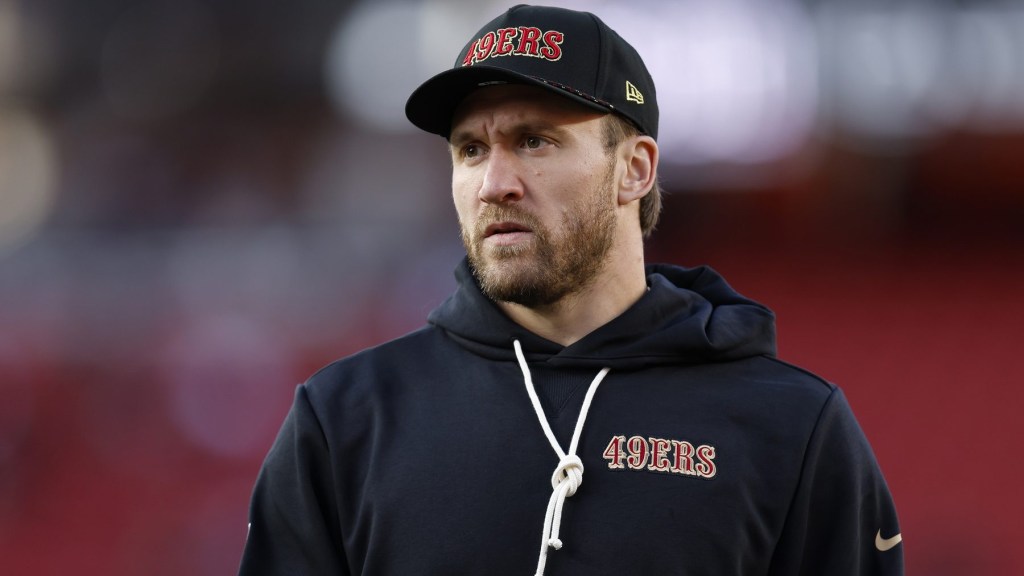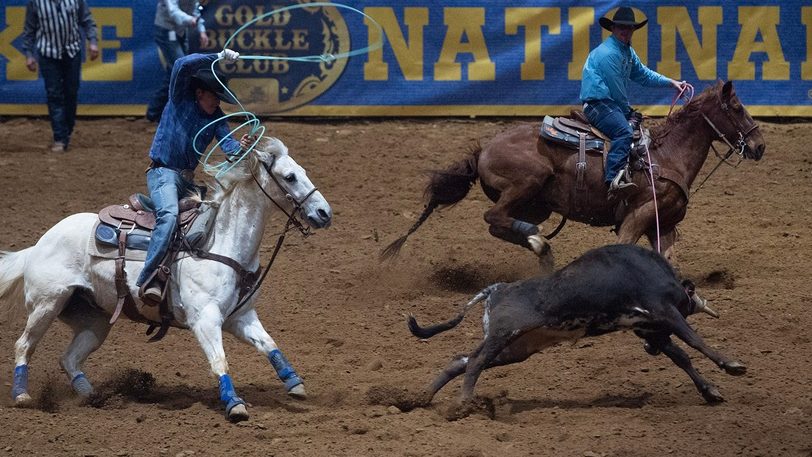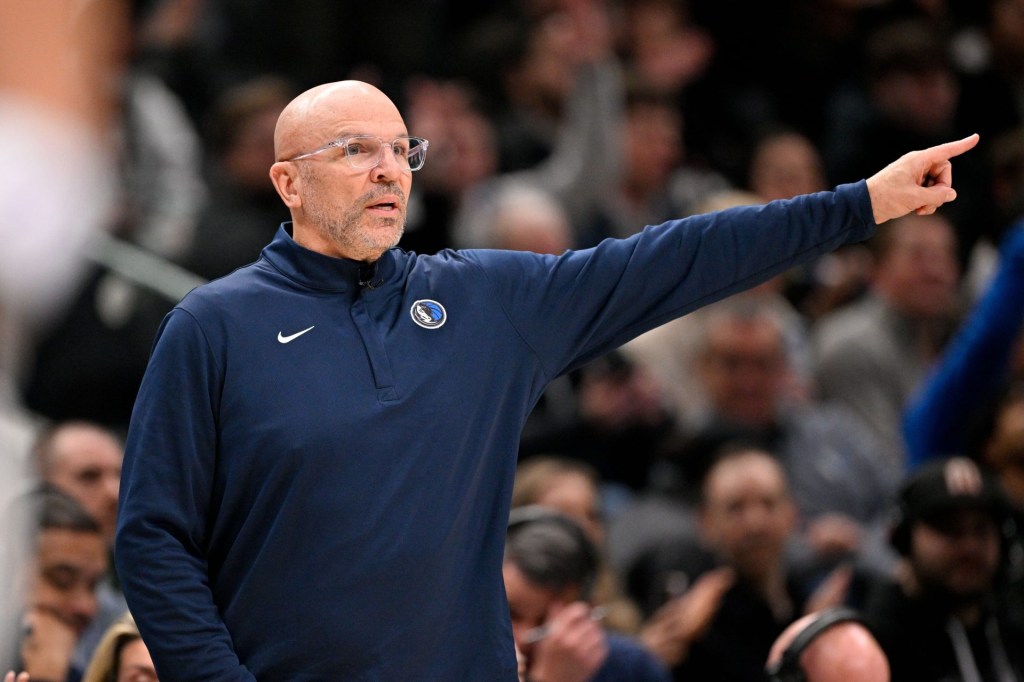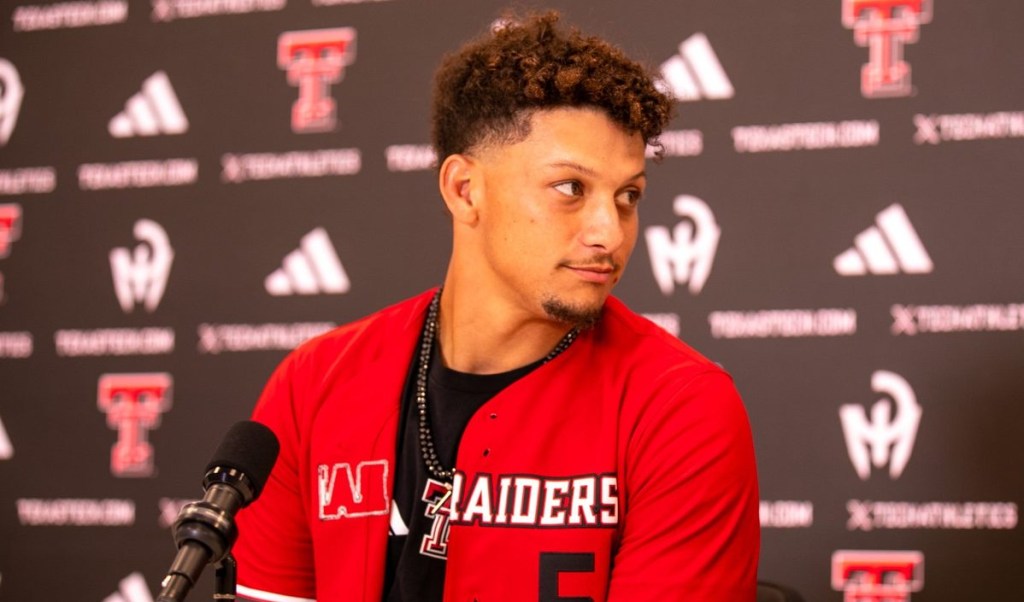Since the framework agreement announced in June, progress has been slow toward finalizing an agreement that would officially end golf’s divide between the PGA Tour and the Saudi Public Investment Fund-backed LIV, two sources with knowledge of the negotiations told Front Office Sports.
“There’s a lot of work to do,” one source said.
The lack of movement has left some within the process questioning whether a final agreement can even be reached by the Dec. 31 deadline, which can be extended. The five-page framework was the first crucial step toward unifying the assets of the PGA Tour, LIV, and DP World Tour into one commercial entity that would have at least $1 billion in investments from PIF.
None of the PGA Tour players had a role in the framework that was negotiated in secret on the PGA Tour’s side by Policy Board members Jimmy Dunne and Ed Herlihy along with Commissioner Jay Monahan.
Dunne and Herlihy are among the four independent directors on the PGA Tour’s Policy Board. The other six members are PGA Tour players: Tiger Woods, Rory McIlroy, Webb Simpson, Peter Malnati, Patrick Cantlay, and Charley Hoffman.
Woods recently was added to the Policy Board. Randall Stephenson, a former AT&T executive, said he had “serious concerns” about the partnership when he resigned from the board last month.
It isn’t immediately clear what issues are holding up negotiations outside some pushback from the player members of the Policy Board, according to one source.
The sports banking firm Allen & Co. and Colin Neville, a partner at The Raine Group, are involved with assisting the PGA Tour and the players during the process.
An Allen & Co. representative declined comment. Neville and LIV did not return messages left by FOS.
A PGA Tour spokesperson pointed FOS to comments made by Monahan and Dennis on Tuesday.
PGA Tour President Tyler Dennis, who sat alongside Monahan at Tuesday’s news conference, said there has been progress.
“It’s very positive and collaborative in nature,” Dennis said.
The framework has accomplished two things that were considered wins for the PGA Tour: the end of all litigation, and the inclusion of a no-poaching clause.
The PGA Tour, LIV, and PIF have spent tens of millions on lawyers since LIV initially sued the PGA Tour last August. But with more than $700 billion of assets, PIF was in a better financial position to wage a legal battle that would have spanned at least until late next year.
LIV’s original complaint, a PGA Tour countersuit, and PIF’s appeal over a discovery decision were all dropped within days of the framework announcement.
Monahan was asked Tuesday if the main goal was reached: the end of the legal dispute with LIV and PIF.
“I would say that we operate in good faith, and I see that on both sides,” Monahan said. “If we were going to end the litigation, we would have just announced that we were ending the litigation.”
Granted, it’s doubtful that LIV and PIF would have ended their legal pursuit without some certainty of a final deal. The framework mandated that the litigation be dismissed with prejudice, meaning the same claims can’t be refiled.
The no-poaching clause was removed last month after the Justice Department — which launched an antitrust investigation into the PGA Tour last year — raised concerns, which effectively allows LIV to once again lure current PGA Tour players. Its last splashy addition was 2022 British Open champion Cameron Smith last August.
One indication that LIV may think a deal with the PGA Tour could crumble would be a new wave of big-money offers.
Monahan, however, sounds optimistic that the partnership agreement can be finalized.
“We have safeguards that are in place to put the PGA Tour in a position to control our future, and as I sit here today, I am confident that we will reach an agreement that achieves a positive outcome for the PGA Tour and our fans,” Monahan said. “I see it, and I’m certain of it.”
Meanwhile, there doesn’t appear to be anything stopping the PGA Tour or DP World Tour from seeking funding elsewhere — something Sen. Richard Blumenthal (D-Conn.) told FOS should be explored.
“There are investors who are willing to provide capital,” Blumenthal said after the Senate Permanent Subcommittee hearing on July 11. “We’re not talking here about hundreds of billions of dollars. It’s a billion dollars, which in the world of corporate America today is not insurmountable.
Blumenthal sent a letter to PIF chief Yasir Al-Rumayyan seeking documents and his testimony. Al-Rumayyan and Monahan did not attend the first hearing.
“In short, PIF cannot have it both ways,” Blumenthal wrote. “If it wants to engage with the United States commercially, it must be subject to United States law and oversight. That oversight includes this subcommittee’s inquiry.”
Al-Rumayyan and Greg Norman, LIV’s CEO, didn’t come off too well at the hearing.
Al-Rumayyan didn’t personally request a membership to Augusta National and the Royal and Ancient Golf Club of St Andrews as part of the framework, although a presentation obtained by the Senate subcommittee listed that possibility.
Blumenthal also said that Norman would be “terminated” once the partnership was finalized, but that also didn’t make the framework.
“That’s the point I kept making: there’s no deal,” Sen. Ron Johnson (R-Wisc.) told FOS after July’s hearing.
Another hearing before the Senate Permanent Subcommittee on Investigations is scheduled for Sept. 13. Like the first, not many new details on the negotiations are expected to be shared given the lack of meaningful movement.
